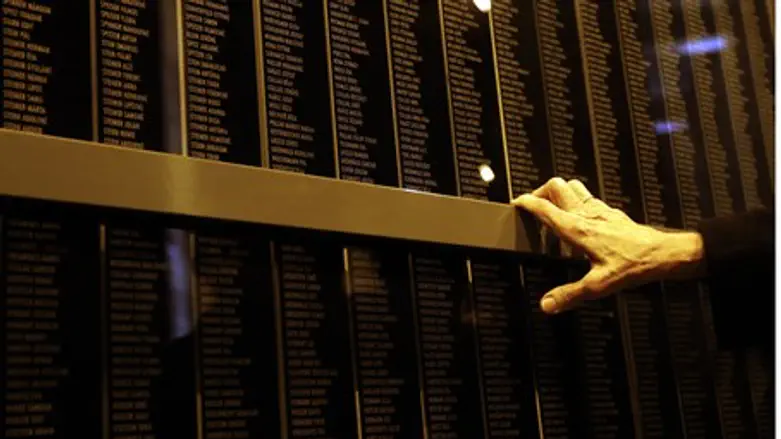
Hungary's largest Jewish organization, Mazsihisz, said Sunday it was pulling out of a Holocaust memorial year, accusing Prime Minister Viktor Orban's government of "ignoring" the sensitivities of survivors, AFP reports.
"Under the current circumstances, Mazsihisz (Federation of Hungarian Jewish Faith Congregations) is withdrawing from the government's Holocaust 2014 program," the group said in a statement quoted by the news agency.
The program marks the 70th anniversary of mass deportations of Hungarian Jews to Nazi death camps in 1944, but has fuelled suspicions that the government is downplaying Hungarians' own role in the deportations -- and resultant deaths of an estimated 450,000 Jews.
Jewish leaders in Hungary threatened last month that they would boycott the official Holocaust memorial events this year, explaining the government was whitewashing the country's role in the deportations of Jews to Nazi camps.
"The program ignores the sensitivities of those who suffered the horrors of the Holocaust," Mazsihisz said Suncay, adding that it would only take part in the memorial year if the government "changes how it works."
It called on Orban to scrap a government plan to erect a monument marking the country's invasion by Nazi Germany in 1944.
Mazsihisz says the monument, a German imperial eagle attacking a seven meter-tall (22 feet) Archangel Gabriel representing Hungary, is aimed at absolving Hungarians from blame for the Holocaust.
In January, 26 Hungarian historians signed an open letter that the Holocaust in Hungary took place "with the active contribution of the Hungarian authorities."
American professor and prominent Holocaust scholar Randolph L. Braham recently returned a Hungarian state decoration in protest at the government's "falsification of history."
Mazsihisz also urged Orban to stop a project for a Holocaust interpretative center as "its version of the history of 1944 was unknown to Mazsihisz," according to AFP.
It added that Orban should fire the head of Veritas, a new historical research institute, who said a deportation of 18,000 Jews in 1941 to German-occupied Soviet Union - over 10,000 of whom were murdered - was merely a "police procedural action against aliens."
"The government has taken a negative direction in memorial policy in the past few years," Mazsihisz said.
Orban's chief of staff Janos Lazar said after a meeting with Jewish leaders Thursday that the prime minister would respond to the main concerns of the Jewish community later this week.
In the background of this incident is the rise in anti-Semitic incidents in Hungary in recent years. These incidents include Hungary's chief rabbi being verbally abused on a Budapest street, anti-Semitic chants at a football match against Israel and pig's trotters being placed on a statue of Raoul Wallenberg, the Swedish diplomat who saved thousands of Budapest Jews in World War II.
Much of the anti-Semitism has been perpetrated by the openly anti-Semitic Jobbik party. In November of 2012, one of its members released a statement saying that a list should be compiled of all of the Jewish members of government.
He was followed by another Jobbik member who called publicly for the resignation of a fellow MP who claimed to have Israeli citizenship.
In May, the World Jewish Congress held an assembly in Budapest to send a strong signal about the rise in anti-Semitism in the central European country.
At that time, Orban pledged to fight anti-Semitism, which he said was "unacceptable and intolerable."
